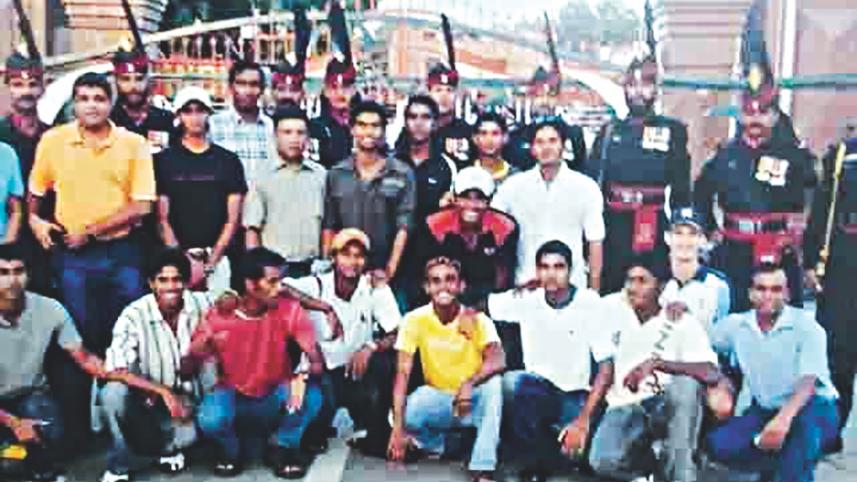‘We had freedom as selectors’

GM Nausher Prince, the former Bangladesh Cricket Board (BCB) national selector had worked with some of the best talents in the country. As a former cricketer who has worked with the likes of Shakib Al Hasan, Tamim Iqbal, Mushfiqur Rahim and Mahmdullah Riyad during their stints in age-level teams through to the national team, Prince is aware of the processes needed to prepare an organic cricket culture. His knowledge also gives a glimpse of the history and the present of Bangladesh cricket.
He left his post in 2007 and is currently residing in Houston, Texas but the former cricketer, still in love with cricket, has continued his work with youth cricket.
"Me, together with Faruque [Ahmed) and Athar [Ali] worked tirelessly back then to develop the country's cricket. There is satisfaction when Bangladesh does well since I used to work with age-level cricket most of the time. The likes of Shakib, Tamim, Mushfiqur or Riyad were small kids back then and I remember how we used to tell them stories about growing up and self-discipline. The nodes of network and communication between the players and the members of the staff were very strong and we used to enjoy ourselves a lot," he said during a talk with The Daily Star.
"What a player does off the field is just as important as what they do on it. You get an idea of how far they can go."
There is an assumption that cricketers like Tamim or Shakib set themselves apart from the rest during their early years and Prince remembered memories of the theme that built successful cricketers.
"Once, when I entered Mushfiqur's room, I noticed how his text books were all meticulously organised. I used to talk to people proudly about how he maintained everything. Discipline can take you a long way and it shows character.
"We harboured strong hopes of winning the 2006 U-19 World Cup in Sri Lanka. I remember how people used to come to the ground to watch Tamim bat because he once sent a ball to the second tier of the Premadasa Stadium at that age. People in Sri Lanka became crazed fans of Tamim and there were more people in our fifth-place playoff match against West Indies than the final of the tournament. These players worked really hard and that's why they are continuing on for Bangladesh.
"We had a foresight about what to look for and worked on progress made. It wasn't like we were bringing in players on a whim and then omitting them. There was a goal. Every tour we would report on players' growth and their strengths and weaknesses," Prince said.
The likes of Shakib or Tamim had the potential, the vision and the ambition -- traits we say are absent in others who do not make it -- but Prince reminded: "It wasn't about natural ability, some make it through hard work and it's not like Shakib was bestowed with god-gifted talent.
"They had to play so many matches against foreign opposition while at age-level and that is why it's partly easier for them. So, mentally and physically they can adjust."
Craftsmanship is needed to build synergy and the foundation was respect for each other, the coaching staff and professionalism.
"The thing was to make them understand that they were part of a team. They needed that confidence. It's a bad attitude to exclude someone, and every member of the team must be treated equally. They were kids and learning about that respect was important. It can't be that you ignore someone who is not doing well," he said.
For Prince, a crucial facet in creating the culture was that the selectors had the independence to trust their own instincts and knowledge.
"We never had to take permission from anyone. We had to have plan for what we want to do with the batch of players we had. My job was as a selector and manager. It was not my job to tell them how to play. It was about keeping morale up and the team management conveyed the same message; we knew what each of our task was."
Prince said that the current scenario is not like that.
"A selector should be free and they have to be trusted. If someone says from high up or other position to field this or that player, then you are just bringing new faces and wasting your talent base. You exclude players but what are you doing about their rehabilitation?" he queried.
There had been talk about the role of national selectors and indeed who selects the eleven who take the field. Interference has led to a lack of values and ideas.
"We never had any bias. The current policies make me feel they [selectors] are not free. It appears to be some sort of king-and-subject dynamic in the current climate. During my time, no matter who the [BCB] president was, the atmosphere was friendly. I went to England to watch the World Cup (2019) and it seemed so different. Not only coaches or staff, everyone. And you can't look down on players who had to prove themselves to get to this point [playing in a World Cup]. There is no satisfaction in that work," he said.
With cricket being halted due to the worldwide coronavirus pandemic, the BCB has enough time on their hands to mull over the finer points of building a culture in order to resurrect the country's cricket.



 For all latest news, follow The Daily Star's Google News channel.
For all latest news, follow The Daily Star's Google News channel.
Comments